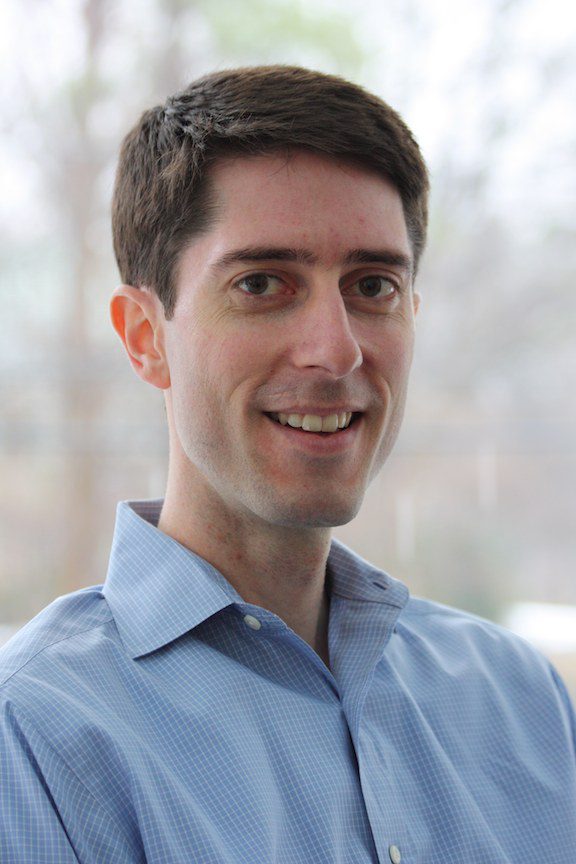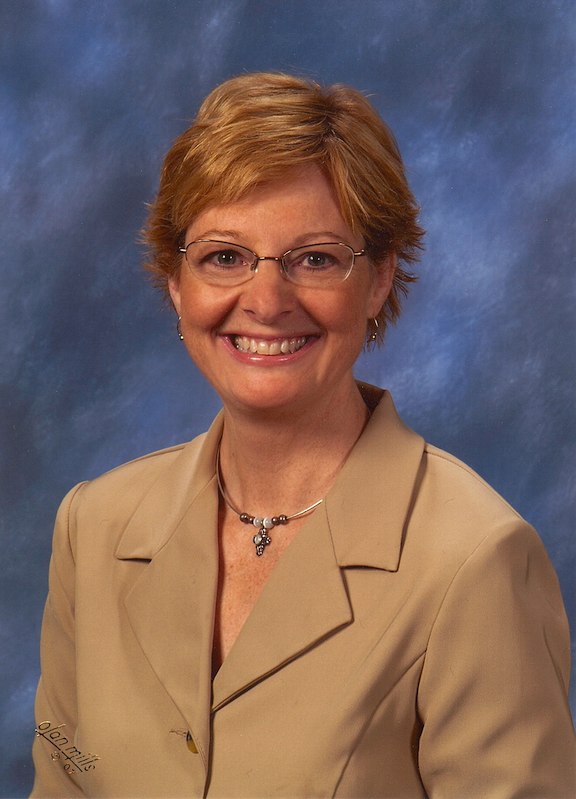Telling Stories: New Books from CLAS

The inclination to tell a story, to record our history and somehow make sense of our lives through sharing, is as ancient as civilization itself. In that great tradition, the faculty of UNC Charlotte’s College of Liberal Arts and Sciences publish dozens of books annually, on subjects ranging from poetry to Pinochet.
For this issue of Exchange, we are highlighting three books that stand out from the list, each telling its own important story. Celebrating the commonality of narrative, be it personal or global, these three very different books share the same goal: to make sense of the world around us.
The Deepest Wounds
 Africana studies assistant professor Tom Rogers grew up in West Virginia, in the heart of Appalachia, where he observed two phenomena, in particular, that have stayed with him in the years since. First, he discovered the deep connection between the population and the land and how society is both molded by and molds its landscape. Second, he experienced the long-term patterns of mistreatment by the logging and coal mining industries on both the environment and the labor force.
Africana studies assistant professor Tom Rogers grew up in West Virginia, in the heart of Appalachia, where he observed two phenomena, in particular, that have stayed with him in the years since. First, he discovered the deep connection between the population and the land and how society is both molded by and molds its landscape. Second, he experienced the long-term patterns of mistreatment by the logging and coal mining industries on both the environment and the labor force.
“A childhood in Appalachia helped foster a fascination with society’s relationship to its surroundings and perhaps led to an intuitive understanding of the paired exploitation of labor and the environment,” he writes in his new book, “The Deepest Wounds: A Labor and Environmental History of Sugar in Northeast Brazil.”
These seminal childhood influences, as subliminal as they may have been, affected the course of Rogers’ life and career, which began with a job at a non-profit environmental organization. Rogers then went on to graduate studies in labor history and Africana studies and now specializes in 20th century Brazilian history. He became interested in the state of Pernambuco, Brazil’s key northeastern sugar-growing state, no doubt because he discovered its unique history tied very much to the land and the labor movement there, and the exploitation of both.
In “The Deepest Wounds,” Rogers traces the social and environmental changes over four centuries in Pernambuco, with a focus on the period from the end of slavery in 1888 to the late 20th century. His book examines the business of making sugarcane grow, and its deleterious effect on the environment and its farmers. He combines a study of workers with analysis of their landscape and describes the impact the legacy of the area’s sugarcane industry has had on Brazil even today.
“This work and these lives, tied to the cultivation of sugarcane, shaped the landscape and drove history,” Rogers writes. “This book tells their story, acknowledging how closely that story intertwines with the history of the fields themselves.”
The story Rogers is telling — one of another country and another people at another time — is also his story. In many ways, he might say it is just another tale like that he heard in the mountains of West Virginia, retold.
In the Shadow of the Bear
 Jim McGavran, an English professor who specializes in Wordsworth and the Romantics, made a career out of studying and teaching the tales that others have told. He teaches students how to read and interpret the classics, how to apply the lessons of years past to modern-day struggles. It was not until relatively late in his career that he realized he might have his own story to tell.
Jim McGavran, an English professor who specializes in Wordsworth and the Romantics, made a career out of studying and teaching the tales that others have told. He teaches students how to read and interpret the classics, how to apply the lessons of years past to modern-day struggles. It was not until relatively late in his career that he realized he might have his own story to tell.
Like Rogers, McGavran’s story is very much tied to the land. His recently published memoir, “In the Shadow of the Bear: A Michigan Memoir,” largely takes place at Little Glen Lake in northwestern Lower Michigan’s Leelanau peninsula, his childhood family vacation spot for over a decade. The area holds a vast store of memories for McGavran, many of which were not unearthed until his return there, with his own family, some 40 years later.
“I was delighted to see that, in many ways, the area was completely unchanged since my youth,” McGavran says. “The flood of memories of my childhood and my parents that came back just upon experiencing this place again was so powerful, I knew I would have to write about it. This memoir was a way to recapture that time and place and to, essentially, bring my parents back to life.”
McGavran uses the place of his childhood vacations as a way of understanding his mother’s powerful but sometimes restless force of love and ambition in the family, as well as his father’s quieter, often self-sacrificing love. Chapters devoted to the return to Leelanau, to each of his parents, and to his father’s family, culminate in the narrative of his daughter’s 2005 Leelanau wedding.
McGavran tells his story, filtered through his consciousness of longing and loss, lending the writing a particular poignancy.
Recalling a particularly moving scene in the book that represents the overriding sense of longing throughout, McGavran describes a memory, “or perhaps just a dream of something I wished had happened at the lake that summer, but either way, I remember it vividly — I’m out in the lake with my dad, and he swims over to me and hugs me.”
Death is Where the Story Begins
 Like McGavran, Christine Davis, assistant professor of communication studies, had a story to tell about her parents, who are also both deceased. Unlike McGavran, however, Davis’ story was not an effort to try and bring them back to life. It was, in some ways, to honor their death.
Like McGavran, Christine Davis, assistant professor of communication studies, had a story to tell about her parents, who are also both deceased. Unlike McGavran, however, Davis’ story was not an effort to try and bring them back to life. It was, in some ways, to honor their death.
Fifteen years ago, Davis’ father died of prostate cancer. She says that during his illness, particularly in the final weeks and months, she longed for a book that would help her understand what she was going through. She vowed she would write one someday. One way to cope with the day-to-day stress and sorrow associated with caregiving, she discovered, was to write in a journal.
Davis was so profoundly affected by her father’s death that she left her career and pursued her PhD in communications, with a focus on the communication of aging. As part of her studies, she received a grant to study hospice care workers and how they communicate with patients and each other.
Her new book, “Death: The Beginning of a Relationship,” intertwines her personal story of her father’s death, taken largely from the journal entries she wrote at the time, and the story of her ethnography of the hospice organization she shadowed in graduate school at the University of South Florida.
Written in narrative form, her book reads like fiction, as she crosses between the two stories of her dealing with her father’s death and the fictionalized characters from her hospice research. She says she hopes the book will help people, like her, who need a guide through end-of-life care and communications. She also hopes it will serve to support Hospice care staff and the important work they do.
“In our culture, when we see a person as being less than fully healthy, we also see them — and treat them — as being less than fully human,” Davis writes. “Hospice helps facilitate the process of treating patients as persons, through the way they think about, interact with and communicate with their patients. My goal in the book is to describe the places where hospice staff, patients and families interconnect beyond their practitioner-patient roles.”
Personally Speaking
John Steinbeck once said, “We spend all of our life trying to be less lonesome. One of our ancient methods is to tell a story, begging the listener to say — and to feel — ‘Yes, that is the way it is, or at least that is the way I feel it.'” The College of Liberal Arts and Sciences recognizes that need we have to share our stories, and so to help our faculty share theirs with an even broader audience we developed, in partnership with the UNC Charlotte J. Murrey Atkins Library, a new speaker series called “Personally Speaking.” Four times a year, we will celebrate faculty authors with a presentation or reading from their book and a reception and booksigning.
Here is the schedule for 2010-2011:
- Sept. 7, 2010, assistant professor of history Christine Haynes discussed the history of book publishing in France in her new book, “Lost Illusions.”
- Nov. 2, 2010, UNC Charlotte Botanical Gardens director Larry Mellichamp and assistant director Paula Gross presented some of the crazy plants you can grow from their new book, “Bizarre Botanicals.”
- Feb. 17, 2011, associate professor of English Tony Jackson shares his take on how the very act of writing, which we very much take for granted, determined the nature of the modern novel, in “The Technology of the Novel.”
- March 22, 2011, assistant professor of religious studies Sean McCloud discusses the connected between class and religion in his book, “Divine Hierarchies.”
For more information about the Personally Speaking series, go to clas.uncc.edu.
CLAS BOOKS ROUNDUP
Books published by faculty in the College of Liberal Arts & Sciences in 2010
Africana Studies
Tanure Ojaide, “Matters of the Moment,” Malthouse Press Limited
Thomas D. Rogers, “The Deepest Wounds: A Labor and Environmental History of Sugar in Northeast Brazil,” University of North Carolina Press
Botanical Gardens
Larry Mellichamp and Paula Gross, “Bizarre Botanicals: How to Grow String-of-Hearts, Jack-in-the-Pulpit, Panda Ginger, and Other Weird and Wonderful Plants,” Timber Press
Criminal Justice and Criminology
Joseph B. Kuhns and Johannes Knutsson, eds., “Police Use of Force: A Global Perspective,” Praeger
Vivian B. Lord and Allen D. Cowan, “Interviewing in Criminal Justice: Victims, Witnesses, Clients, and Suspects,” Jones and Bartlett Publishers
Communication Studies
Christine S. Davis, “Death: The Beginning of a Relationship,” Hampton Press
Christine S. Davis, Heather Powell Gallardo, and Kenneth A. Lachlan, “Straight Talk about Communication Research Methods,” Kendall Hunt
Shawn D. Long, “Communication, Relationships and Practices in Virtual Work,” Business Science Reference
English
Nino Amiridze, Boyd H. Davis, and Margaret Maclagan, eds., “Fillers, Pauses and Placeholders,” John Benjamins Publishing Company
Peter Blair, “Farang,” Autumn House Press
Michelle Comstock, Mary Ann Cain, and Lil Brannon, “Composing Public Space: Teaching Writing in the Face of Private Interests,” Boynton/Cook
Kathy Merlock Jackson and Mark I. West, eds., “Disneyland and Culture: Essays on the Parks and Their Influence,” McFarland
Jim McGavran, “In the Shadow of the Bear: A Michigan Memoir,” Michigan State University Press
Malin Pereira, “Into a Light Both Brilliant and Unseen: Conversations with Contemporary Black Poets,” University of Georgia Press
Lara Vetter, “Modernist Writings and Religio-scientific Discourse: H.D., Loy, and Toomer,” Palgrave MacMillan
Geography and Earth Sciences
William Graves and Heather A. Smith, eds., “Charlotte, NC: The Global Evolution of a New South City,” University of Georgia Press
History
Jerry Dávila, “Hotel Trópico: Brazil and the Challenge of African Decolonization,1950-1980,” Duke University Press
Mark Elliott and John David Smith, eds., “Undaunted Radical: The Selected Writings and Speeches of Albion W. Tourgée,” Louisiana State University Press
Christine Haynes, “Lost Illusions: The Politics of Publishing in Nineteenth-Century France,” Harvard University Press
Cheryl D. Hicks, “Talk With You Like A Woman: African American Women, Justice and Reform in New York, 1890-1935,” University of North Carolina Press
Language and Culture Studies
Carmen Carney and Carlos Coria-Sánchez, “Entre Socios: Español para el mundo profesional,” McGraw Hill
Carlos M. Coria-Sánchez, “Ángeles Mastretta y el feminismo en México,” Plaza Y Valdés
Michael Scott Doyle,T. Bruce Fryer, and Ronald Cere “Éxito comercial: Prácticas administrativas y contextos culturales,” Heinle Cengage Learning
Fumie Kato, “Improving Student Motivation toward Japanese Learning,” Gakujutsu Shuppankai
Philosophy
Gordon Hull, “Hobbes and the Making of Modern Political Thought,” MPG Books Group
Robin James, “The Conjectural Body: Gender, Race, and the Philosophy of Music,” Lexington Books
Physics
Sohail Anwar, M. Yasin Akhtar Raja, Salahuddin Qazi, and Mohammad Ilyas, “Nanotechnology for Telecommunications,” CRC Press
Robert K. Tyson, “Principles of Adaptive Optics,” CRC Press
Political Science
Silvia Borzutzky and Gregory B. Weeks, eds. “The Bachelet Government: Conflict and Consensus in Post-Pinochet Chile,” University Press of Florida
Suzanne M. Leland and Kurt Thurmaier, “City-County Consolidation: Promises Made, Promises Kept?” Georgetown University Press
Elizabethann O’Sullivan, Gary R. Rassell, and Jocelyn Devance Taliaferro, “Practical Research Methods for Nonprofit and Public Administrators,” Longman
Sociology
Rosemary L. Hopcroft, “Sociology: A Biosocial Introduction,” Paradigm
This story is from the latest issue of the College magazine, Exchange.